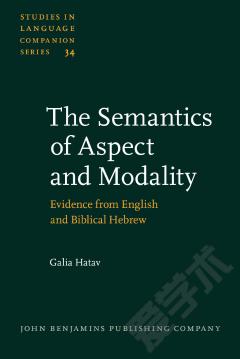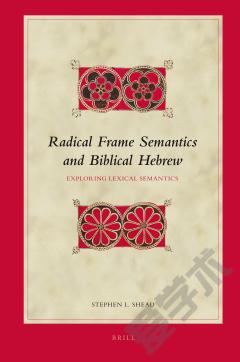The Semantics of Aspect and Modality. Evidence from English and Biblical Hebrew.
“The semantics of aspect and modality” will be of interest both to linguists working on temporality, as a general phenomenon in language, and Hebraists investigating the semantics of the verbal forms in biblical Hebrew.Tense, aspect and modality are among the most challenging discussed areas of language. Similarly, the semantics of the verbal system in biblical Hebrew has been investigated since the Middle Ages. Galia Hatav provides extensive critical overviews of research in both areas, and suggests a new approach for analyzing the biblical Hebrew verb system, showing it to be tenseless.The overall approach adopted in the book is basically of truth conditional semantics, and adheres closely to Kamp’s DRT (Discourse Representation Theory). For each phenomenon covered, the relevant literature is surveyed and critically discussed, with reference to English, and when relevant to other languages, too. The conclusions arrived at are then applied to biblical Hebrew.However, despite the sophisticated semantic theory the book is also meticulous in its attention to philological details of the Hebrew text, lending to a particulary harmonious combination of formal and discourse approach. The biblical Hebrew part of the book will be of interest mainly to Hebraists, but linguists dealing with temporality in general may find it useful as an interesting illustration for a tenseless exotic language.
{{comment.content}}








 京公网安备 11010802027623号
京公网安备 11010802027623号